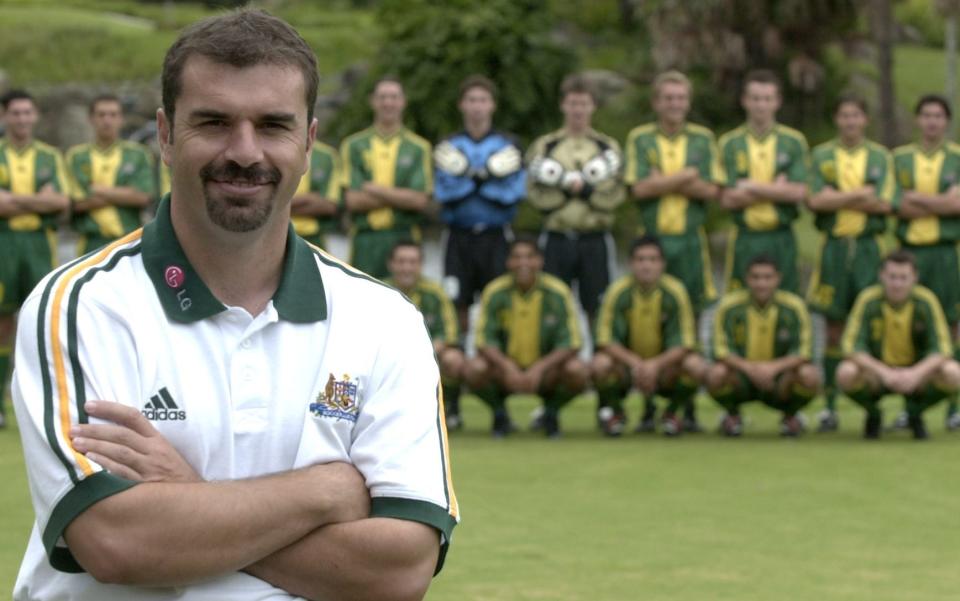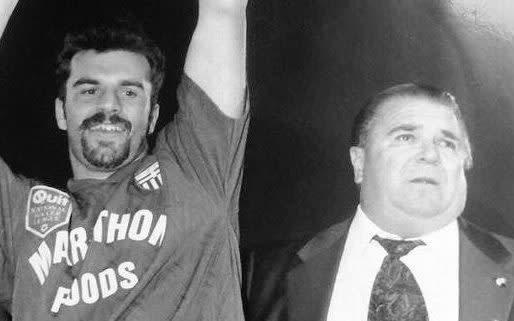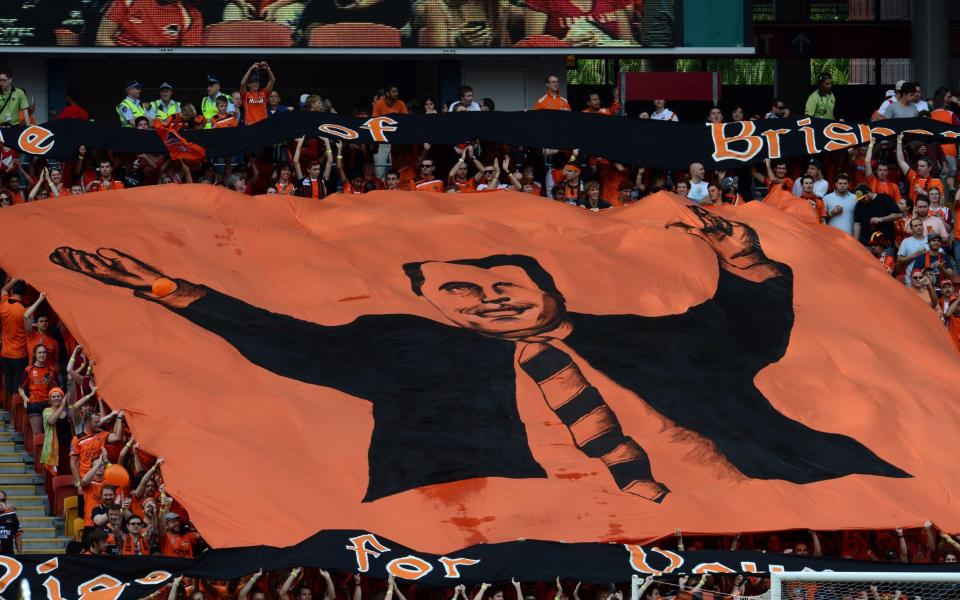'Everyone loves Ange' – how Puskas, quick wit and Aussie steel forged Tottenham's new hero

As you wander along Coventry Street in south Melbourne, past everything from bridal shops and kitchen showrooms to the looming grey block of 1960s-era flats, suddenly you see a flash of bright silver and green.
It is the Scottish Premiership trophy, carefully painted on a wall adjacent to some empty offices, and the fist-clenching man depicted in the mural with a gold medal hanging around his neck is the one whose name immediately flicks off the tongue of any football fan in the city if you mention Tottenham Hotspur at the moment. “Ange.”
Here, some 10,500 miles away from the Tottenham Hotspur Stadium, Ange Postecoglou is revered, having been integral to all four of the only national titles that South Melbourne FC have won – two as captain, then two as manager. However, he is not the only famous football name to have coached the club.

For three years of his playing career at South Melbourne, Postecoglou, who was born in Greece, was managed by one of the greatest of all, the legendary Ferenc Puskas, the Hungary icon of the Fifties and Sixties whose surname has been given to Fifa’s annual “goal of the year” award. And, as Tottenham fans acquaint themselves with “Angeball”, the origins of his style can be traced back to Puskas.
Former Australia defender Joe Palatsides, who played against Postecoglou at rival Greek junior clubs before becoming his team-mate during Puskas’s tenure at South Melbourne, says: “We were all in awe of the great Ferenc Puskas, of what this man stood for in world football, and so everyone should be, but his English skills weren’t great and it was Ange who led what Puskas wanted us to do on the pitch, and helped us transform that into the way we should play. He led from the front.
“Ferenc Puskas didn’t necessarily do anything amazing as a coach but he inspired us as footballers to want to achieve dizzy heights that he had achieved. Now, I think Ange inspires all his players with his motivational skills, plus he’s also probably a lot more articulate than Ferenc Puskas was.”
Another former South Melbourne player, Kimon Taliadoros, who played with Postecoglou for more than six years until 1992, recalls: “Mr Puskas came with a philosophy of playing an open and attacking style of football, and this suited Ange’s personality as well because we often used to joke that Ange, as a left-back, spent more time on the left-wing than defending. ‘We will always win games if we score more than the opponent’ was Mr Puskas’s simple philosophy. I’ve observed that in Ange’s approach over the years. Then, when you combine that with his Australian spirit of not being intimidated, it’s a pretty good mix.”
Puskas, with right-footed left-back Postecoglou as captain, won the 1991 Australian title, but it was not just the latter’s ability with the ball that made him popular.
Palatsides says: “Everyone loves Ange. Back then the group was so well-knitted, and Ange had a lot to do with that. He brought all the boys together. He was one of the boys, but at the same time he was setting standards.”

Taliadoros also recalls Postecoglou’s “steely determination”. He picked up that drive from his parents, who moved Down Under when Postecoglou was five. An estimated 250,000 Greeks now live in Melbourne, which has given it a very unofficial status as Greece’s third-largest city, behind only Athens and Thessaloniki.
The 57-year-old’s father was a furniture maker who worked such long hours that Postecoglou says he sometimes got to see him only on match days at their local football club, originally known as South Melbourne Hallas, founded by Greek migrants in 1959.
Bill Papastergiadis, who is the president of the Greek Community of Melbourne and played on the same Monash University football team as Postecoglou, believes that the former Australia national team coach’s career achievements have helped change perceptions of migrants in the country, saying: “To celebrate multiculturalism, you need success stories, something to hang your hat, and Ange is one of the best success stories.
“There was a period of time where we, as early migrants, were considered as outsiders here. It meant they had to work twice as hard, and that’s true of Ange. He worked very hard at his craft. He’s also a relatively quiet guy. He hasn’t forgotten where he’s from.”
Postecoglou is a passionate fan of Carlton, an Australian rules club in Melbourne, and his love of sport is reflected in the city. From underneath the towering city-centre skyscrapers, rowers scull along the Yarra river towards Melbourne Park, where the iconic venue for the Australian Open tennis lies adjacent to the water, with Melbourne Rectangular Stadium’s dome-shaped roof in the background and, across a railway bridge, the unmistakable Melbourne Cricket Ground.
Head south of the river and a short walk leads you to more sports complexes. There is an aquatic centre, squash courts, an indoor hockey centre and Albert Park, which transforms into the city’s Formula One circuit once a year. Just inside where turn five would be stands the Lakeside Stadium, the home of South Melbourne, where Postecoglou made his first foray into management in 1996.

After two league triumphs with his beloved old club, he would go on to face Manchester United in the 2000 Club World Cup, win titles with Brisbane Roar, Japanese side Yokohama Marinos and most recently the treble with Celtic. Not forgetting that he led Australia to their first Asian Cup title in 2015, a trophy which stamped his name into Australian sporting history.
Papastergiadis, who is also now chairman of South Melbourne, says: “It’s arguable that he’s the most successful coach the country has ever had. It’s unusual for someone’s name to be mentioned on a loudspeaker at a match here and for there to be a boisterous round of applause, but he’s engendered that respect.”
Palatsides, who now coaches Melbourne Victory’s youth team, feels Postecoglou has “changed the perception of an Australian coach” worldwide, saying: “Ange has paved the way for all Australian coaches, and given us great courage to be able to dream of things that we probably couldn’t have dreamt of in the past.”

 Yahoo Sport
Yahoo Sport 




































































